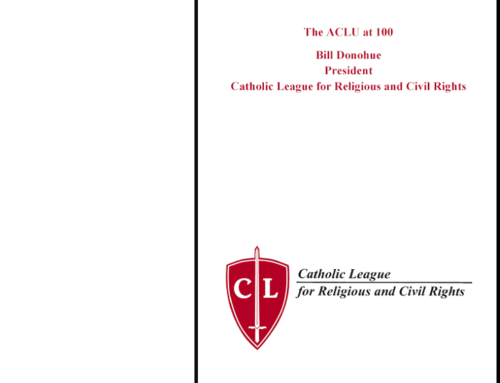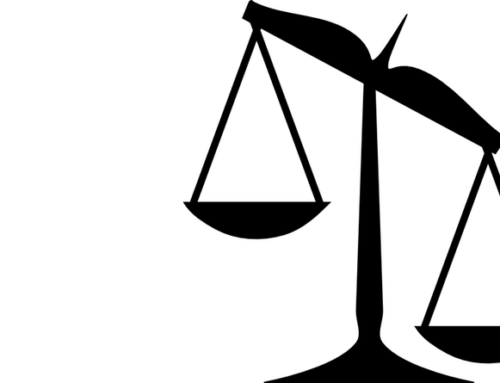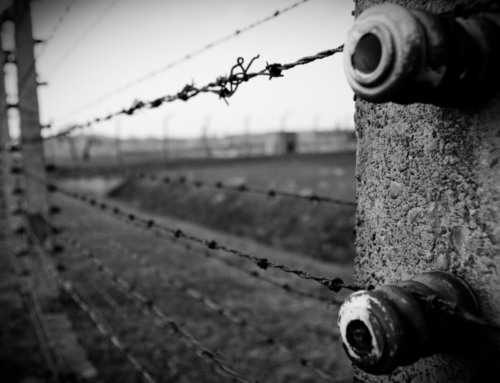For PDF version, click here.
The following report examines the efforts undertaken by the Biden administration to advance the LGBT agenda around the globe. It begins by exploring the overarching policies that Biden has pursued. It then catalogs how these aims have played out in specific regions.
White House
On February 4, 2021, President Biden issued a memorandum NSM-4 on “Advancing the Human Rights of Lesbian, Gay, Bisexual, Transgender, Queer and Intersex Persons Around the World.” Significantly, it was given a “national security memorandum” number making it of an even higher importance.
In Biden’s speech on September 21, 2021, to the 76th session of the United Nations General Assembly, he said, “We all must defend the rights of LGBTQI individuals so they can live and love openly without fear, whether it’s Chechnya or Cameroon or anywhere.”
President Biden’s Executive Order 14075, “Advancing Equality for Lesbian, Gay, Bisexual, Transgender, Queer, and Intersex Individuals,” instructed the Secretary of State, together with the Secretary of the Treasury, the Secretary of Health and Human Services, and the Administrator of United States Agency for International Development (USAID), to create a plan to combat “conversion therapy” around the world.
State Department
Secretary Antony Blinken said, “We are engaging around the world in cultural diplomacy. We’re engaging in also making sure that we’re doing what we can to help protect the rights of marginalized groups, including notably the LGBTI+ community which in so many countries around the world is under threat, and many cases under growing threat.”
Under Blinken’s leadership, the State Department has observed International Day Against Homophobia, Transphobia and Biphobia; Coming Out Day; Spirit Day; International Pronouns Day; Intersex Awareness Day; Intersex Day of Solidarity; and Ace week (celebrating those with asexual-spectrum identities). Additionally, the State Department has participated in Pride Month celebrations around the world. Numerous bureaus and embassies hosted and participated in wide-ranging Pride events creating social media toolkits that were shared with all embassies and consulates.
Scores of U.S. embassies flew Pride or Progress flags. Several of the host nations still protect traditional values, and therefore, the American effort could be viewed as a form of imperialism, foisting these degenerative values on these countries. Examples of this include: the Holy See, Angola, Azerbaijan, the Bahamas, Bahrain, Belize, Bermuda, Bulgaria, Burma, the Central African Republic, Chad, China, Comoros, Côte d’Ivoire (Ivory Coast), Curacao, Czech Republic, Dominican Republic, El Salvador, Equatorial Guinea, Estonia, Eswatini, Fiji, Guatemala, Guyana, Haiti, Honduras, Hungary, India, Italy, Jamaica, Japan, Kuwait, Laos, Latvia, Lithuania, Madagascar, Mauritius, Moldova, Montenegro Morocco, Mozambique, Namibia, Nepal, Northern Macedonia, Panama, Papua New Guinea, Paraguay, Peru, Philippines, Poland, San Marino, Serbia, Seychelles, Slovakia, South Korea, Sudan, Tanzania, Thailand, Timor-Leste, Tonga, Trinidad and Tobago, Uganda, the United Arab Emirates, and Vietnam.
Each year, the State Department releases its Country Reports on Human Rights Practices, known as Country Reports. These 195 Country Reports evaluate in detail the human rights record of every country in the world as perceived by the State Department. Beginning in 2022, 67 countries were criticized under the category of “Involuntary or Coercive Medical or Psychological Practices Specifically Targeting LGBTQI+ Individuals.” Additionally, The Country Reports identify 154 countries as having inadequate “legal gender recognition.” In other words, the State Department considers it a potential human rights violation if other countries do not easily facilitate changing the sex designation on official documents or name changes for someone who identifies as the opposite sex. Examples include: Albania because its law does not “guarantee the individual’s right to self-determination of gender,” the Central African Republic because “the constitution defines marriage as ‘the union between one man and one woman,'” Kazakhstan because “some families and private religious practitioners engaged in prayers and religious ceremonies intended to alter the sexual orientation or gender identities of LGBTQI+ individuals,” Madagascar because “individuals cannot self-identify in their official documents,” Malaysian because the law “does not recognize LGBTQI+ individuals, couples, or their families,” and Nicaragua because “the law curtailed the rights of LGBTQI+ households by defining families as necessarily headed by a man and a woman.”
In September 2021, President Biden appointed Jessica Stern as the administration’s LGBTQI Special Envoy. In her time at the post, she has traveled to 22 different countries to advance the LGBT agenda globally. In 2022, she attended a Pride parade in Lithuania where she celebrated the number of children she saw in attendance. She spoke with civil society organizations about removing “gender markers” from the national ID system and denouncing conversion therapy in Brazil.
In 2021, the State Department issued “Memorandum on Advancing Human Rights of Lesbian, Gay Bisexual, Transgender, Queer, and Intersex Persons Around the World.” The memorandum calls for the department to “lead a standing group, with appropriate interagency representation, to help ensure the Federal Government’s swift and meaningful response to serious incidents that threaten the human rights of LGBTQI+ persons abroad. When foreign governments move to restrict the rights of LGBTQI+ persons or fail to enforce legal protections in place, thereby contributing to a climate of intolerance, agencies engaged abroad shall consider appropriate responses, including using the full range of diplomatic and assistance tools and, as appropriate, financial sanctions, visa restrictions, and other actions.”
In 2022, the State Department’s Bureau of Democracy, Human Rights, and Labor solicited “new proposals for programming to support the human rights of LGBTQI+ persons, with a focus on LGBTQI+ inclusive democracy, and particularly marginalized populations including lesbian, bisexual and queer women and transgender, intersex and other gender diverse persons, as well as under-resourced regions.”
United States Agency for International Development (USAID)
A January 2023 USAID report, “Integrating LGBTQI+ Considerations into Education Programming,” recommended training educators to use appropriate pronouns and changed reference to mother or father to “parent/parent” or “parent/guardian.” Other parts of the report called for the abolition of school policies that are “based on the gender binary,” including dress codes or prohibitions against “long hair or long nails for some students.” Additionally, the report states “Ensure that education officials do not reveal a student’s sexual orientation or gender identity without the student’s permission – even to the student’s family.” Furthermore, USAID drew on resources provided by the anti-Catholic Southern Poverty Law Center to craft this report.
In August 2023, USAID’s “LGBTQI+ Inclusive Development Policy,” states, “USAID affirms and celebrates lesbian, gay, bisexual, transgender, queer, and intersex (LGBTQI+) people and all people of diverse sexual orientations, gender identities and expressions, and sex characteristics as integral parts of every society.”
Peace Corps
“In June 2021 Peace Corps’ Europe, Mediterranean, and Asia Region hosted (with the support of the Office of Overseas Programming and Training Support) hosted a LGBTQI+ support and non-discrimination webinar for 21 posts, during which Peace Corps North Macedonia presented on best practices for supporting Transgender Volunteers and Peace Corps Thailand presented on best practices for placing and supporting same-sex couple Volunteers.”
National Endowment for the Humanities
Between October 1, 2020, and September 30, 2023, the United States has issued more than 1,100 grants to fund the LGBT agenda around the world. Many of these grants are administered by the National Endowment for the Humanities.
One of these grants gave $1 million to Outright Action, an LGBT activist organization, working in Nigeria, South Africa, Uganda, Ukraine, the Philippines, Iran, and China.
Another project that received funding was translating the “Homosaurus” into Spanish. The “Homosaurus” is a thesaurus of LGBT terms such as “anonymous sex,” “aromantic porn films,” “pederasts,” “children’s sexuality,” and “gay children.” Additionally, the “Homosaurus” defined “fetishes” including “ephebophilia” (a reference to being attracted to people aged 15 to 19) and “Hebephilia” (attracted to children aged 11 to 14).
Sub-Saharan Africa
In 2021, the U.S. Embassy in Mauritius awarded a grant to a prominent LGBT organization “to establish a public research space promoting the wellbeing and integration of the LGBTQI+ community.”
In August of 2021, the U.S. Embassy in Angola hosted “an informal roundtable discussion between a congressional delegation led by U.S. Representative Karen Bass and members of Angolan civil society which included representatives from Angolan LGBTQI+ organizations.
On November 29, 2021, Botswana’s Court of Appeals upheld a lower court’s decision to strike down a law that forbade “carnal knowledge of any person against the order of nature.” U.S. Embassy staff attended the November 29 decision and the October 12 Court of Appeals hearing on the case. The Embassy also coordinated a statement with the UK, EU, Australia, France, and Germany celebrating the decision and congratulating activists for their “long but successful struggle.”
In 2022, the U.S. Mission to Botswana offered a grant opportunity called “Beyond Decriminalization: Expanding LGBTQI+ Rights in Botswana.” The grant would provide $300,000 to “carry out a program to promote greater social acceptance of LGBTQI+ persons, including among influential religious groups and traditional groups (our italics).”
In May of 2022. the U.S. Embassy’s Deputy Chief of Mission (DCM) to Zimbabwe conducted a press interview discussing the Department’s Human Rights Report and the importance of International Day Against Homophobia, Transphobia, and Biphobia. The DCM emphasized “the growing recognition of LGBTQI+ human rights and said all should live their lives authentically and without fear.” The embassy also featured an excerpt of the interview on social media.
In July of 2022, the U.S. Ambassador to Benin participated in a reception “to elevate the importance the United States places on the defense and protection of human rights – in particular LGBTQI+ inclusion.”
In 2023, after the Ugandan parliament passed a bill restricting homosexual conduct, “according to Ugandan news outlets, U.S. officials threatened to withhold funds used to treat 1.4 million Ugandans living with HIV/Aids. That would include withholding $400 million annually that goes toward life-saving anti-retroviral drugs.”
In August of 2023, State Department LGBT Envoy Jessica Stern traveled to Mauritius where she participated in a “conference for LGBTQI+ human rights defenders from throughout Africa, as well as scheduled meetings with civil society, officials from the Government of Mauritius, and likeminded international partners.”
In 2023, LGBT Envoy Stern also traveled to South Africa where she “outlined some key areas on which she’s focusing her efforts, including decriminalising homosexuality, legal gender recognition, intersex rights, ending LGBTQI+ violence, and fighting against conversion therapy practices.” During her trip she spoke in favor of using U.S. diplomatic power to change LGBT laws particularly in Africa saying that “it becomes really important that the US government uses our political power to fight sodomy laws, fight for legal gender recognition, and fight gender-based violence, but also that we put our money where our mouth is – and that means increasing our financial support for LGBTQI+ advocacy everywhere.”
In February of 2024, the U.S. State Department announced that it would consider withholding funding and aid from Ghana in response to the passing of anti-LGBTQ legislation. The law would prohibit the forming or funding of LGBTQ+ groups with offenders potentially being sentenced to three years in jail. In a statement, State Department spokesman Mat Miller said the bill “would certainly have a chilling effect on foreign investment and tourism in Ghana,” noting that “should the bill pass, it would potentially have ramifications on U.S. assistance.”
During the Biden administration, the U.S. Embassy in Cabo Verde has remained in regular contact with the Cabo Verde National Commission for Human Rights and Citizenship (CNDHC) through the final phase of its “LGBTI Citizenship Project.” The aim of this project is “to draft legislation to prohibit discrimination on the basis of sexual orientation as well as gender identity, race, color, origin, ethnicity, religion, national origin, age, disability, health, and immigration status.”
Middle East and North Africa
In June 2021, the U.S. Embassy in the United Arab Emirates flew the LGBT Pride Flag in recognition of Pride Month. This caused a backlash in the country. The former director of Dubai’s finance department called the move “very disrespectful” and a senior Emirati official referred to the flag flying as “[rubbing] it in our faces.”
In 2021, after the U.S. Embassy in Bahrain flew the Pride Flag, “Bahraini [Member of Parliament] Ahmed Al-Dumstani published a copy of a joint statement signed by 21 lawmakers that calls for a government response to the US embassy’s rainbow flag display. The statement describes the rainbow flag as a ‘blatant provocation against Bahraini society’ and ‘a violation of international and diplomatic relations.'”
In June of 2022, the official Twitter account of the U.S. embassy in Kuwait posted an image of a Pride Flag with a pro-LGBT message. Kuwaiti officials accused the embassy of violating international conventions that require diplomats to “respect the laws and regulations of the receiving state.” The Kuwaiti Foreign Ministry summoned the top U.S. diplomat and sent a memo to the U.S. Chargé d’Affaires James Holtsnider requesting that “the embassy…respect the laws and regulations in force in the State of Kuwait and the obligation not to publish such tweets.”
USAID’s Middle East and North Africa partnered with Civil Society Organizations “to create a toolkit to enhance security protections for organizations working with key populations — including gay men and other men who have sex with men, people who use drugs, sex workers, and transgender people — on HIV programming. LGBTQI+ organizations from across the region have used the toolkit to assess their strengths and areas for growth, and to organize, plan, and strategize for resilient health programming and rights advocacy.”
During the Biden Administration, the U.S. Embassy in Algeria worked to promote “quarterly LGBTQI+-focused roundtables with like-minded diplomatic missions.”
During the Biden Administration, the U.S. Embassy in Jordan, initiated a quarterly dialogue with other like-minded missions. This partnership established an ongoing dialogue and agreed on principles of engagement and information sharing regarding LGBT issues.
Asia
In November of 2021, Special Envoy Jessica Stern participated in the U.S.-Vietnam Human Rights Dialogue “to raise challenges on the promotion of human rights of LGBTQI+ persons in Vietnam, as well as highlight areas of progress and potential cooperation to further advance human rights protections,” including drafting a “gender affirmation law to ensure legal gender recognition and amendments to the Marriage and Family Law to provide same-sex couples property and inheritance rights.”
During the Biden administration, the United States Embassy in Uzbekistan has “consistently raised the issue of decriminalization [of same-sex activity] with the government and continues to look for ways to make progress on this sensitive issue.”
One potential human rights violation noted in the Kazakhstan Country Report was “some families and private religious practitioners engaged in prayers and religious ceremonies intended to alter the sexual orientation or gender identities of LGBTQI+ individuals.”
Europe
In June 2021, 2022, and 2023 the Pride flag was displayed outside of the U.S. Embassy to the Holy See.
In September 2021, the U.S. embassy in Portugal gave $10,000 to fund a film festival called “Queer Lisboa.” This is an LGBT film festival held in Portugal that featured drag queens and depictions of incest and pedophilia. At the time, Chargé d’Affaires Kristin Kan said she was “very happy” to support this film festival as “part of our Diversity, Equality and Inclusion efforts.”
In 2022, the United States Embassy in North Macedonia “provided a small grant to an LGBTQI+ organization to host a series of workshops/discussions with the LGBTQI+ community, allies, and state institutions on recognizing and mitigating discrimination.”
In 2022, the United States Embassy in Albania announced that it will partner with The Justice Department’s Office of Overseas Prosecutorial Development, Assistance and Training (OPDAT) “to train victim coordinators on LGBTQI+ rights, inviting prominent representatives from the LGBTQI+ community as well as representatives from the Institution of the Commissioner on Protection from Discrimination. The Albanian law ‘On Protection from Discriminations’ does not specifically include LGBTQI+ persons.”
In 2022, the State Department also wished to partner with OPDAT to amend criminal law in the Baltic states. In Estonia and Lithuania, they aimed to include gender identity as a protected class. Meanwhile, in Latvia, they planned to make sexual orientation and gender identity into a protected class.
Latin America and the Caribbean
NGOs and churches from Caribbean countries have pushed back against the display of Pride flags, asserting in a joint statement that flying Pride flags at embassies “represents gross disrespect and an assault upon the consciousness of our societies.”
When the United States Embassy in Jamaica flew the Pride flag, it led to protests. One sign read “Stop cultural imperialism”; protestors also called the flag “an insult to our country.”







